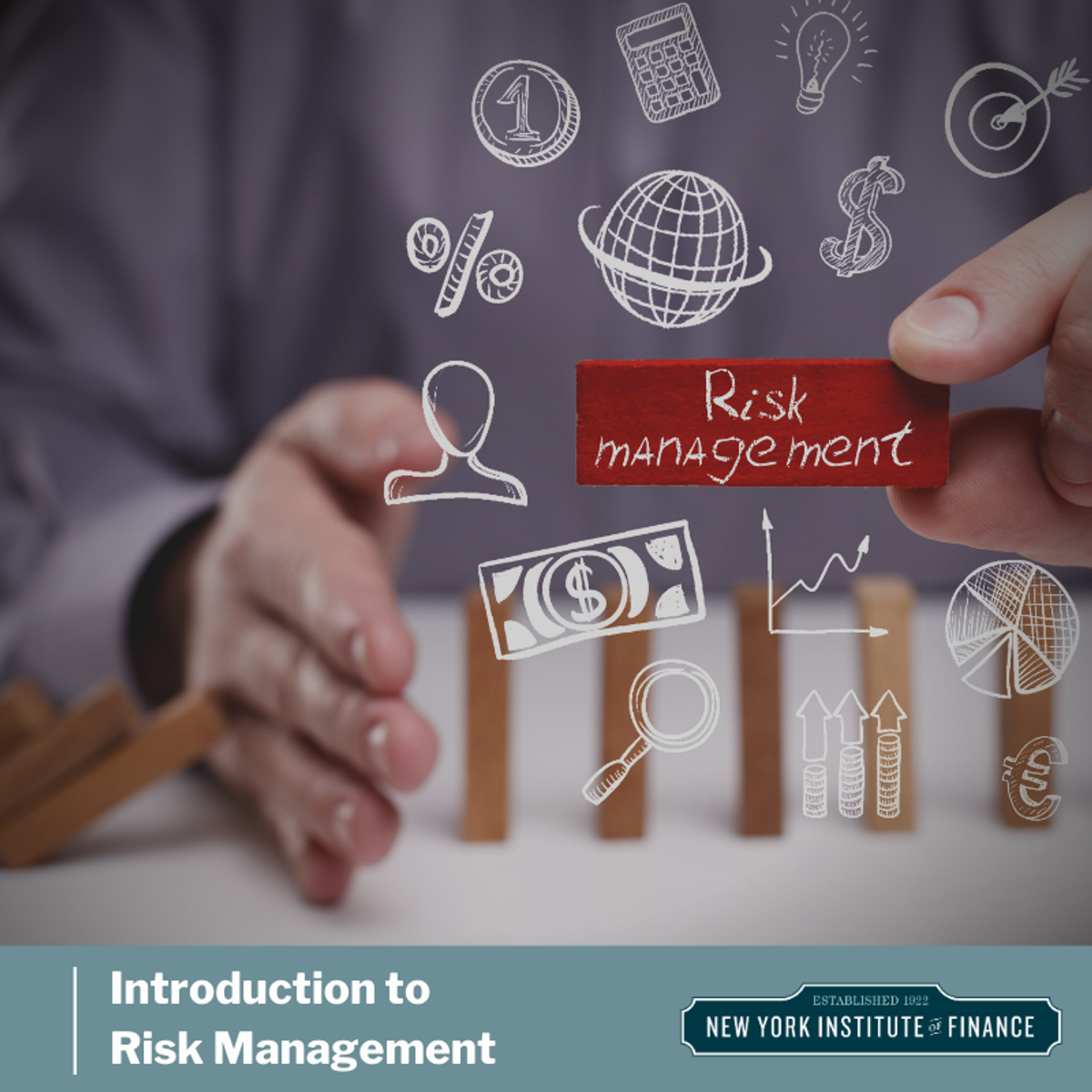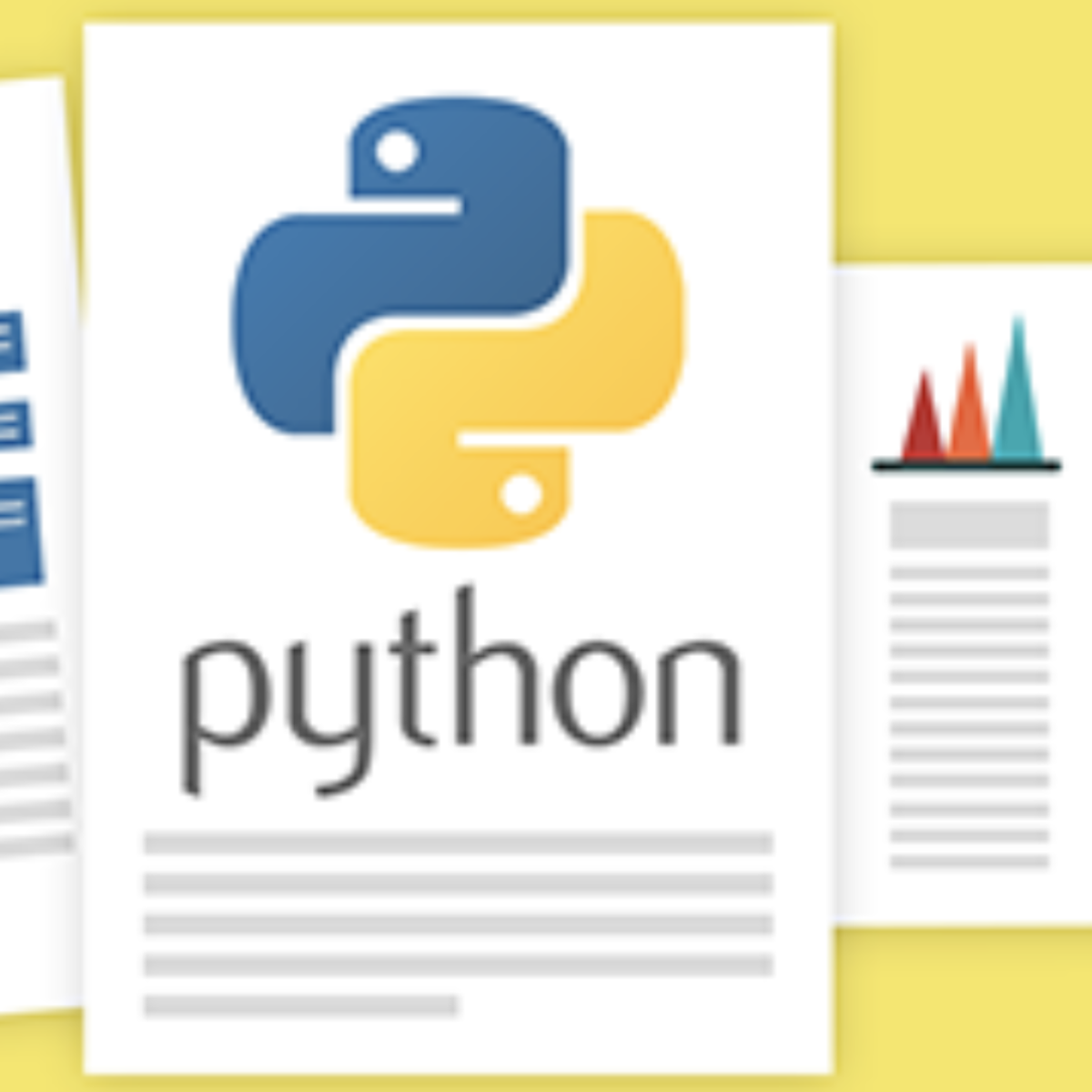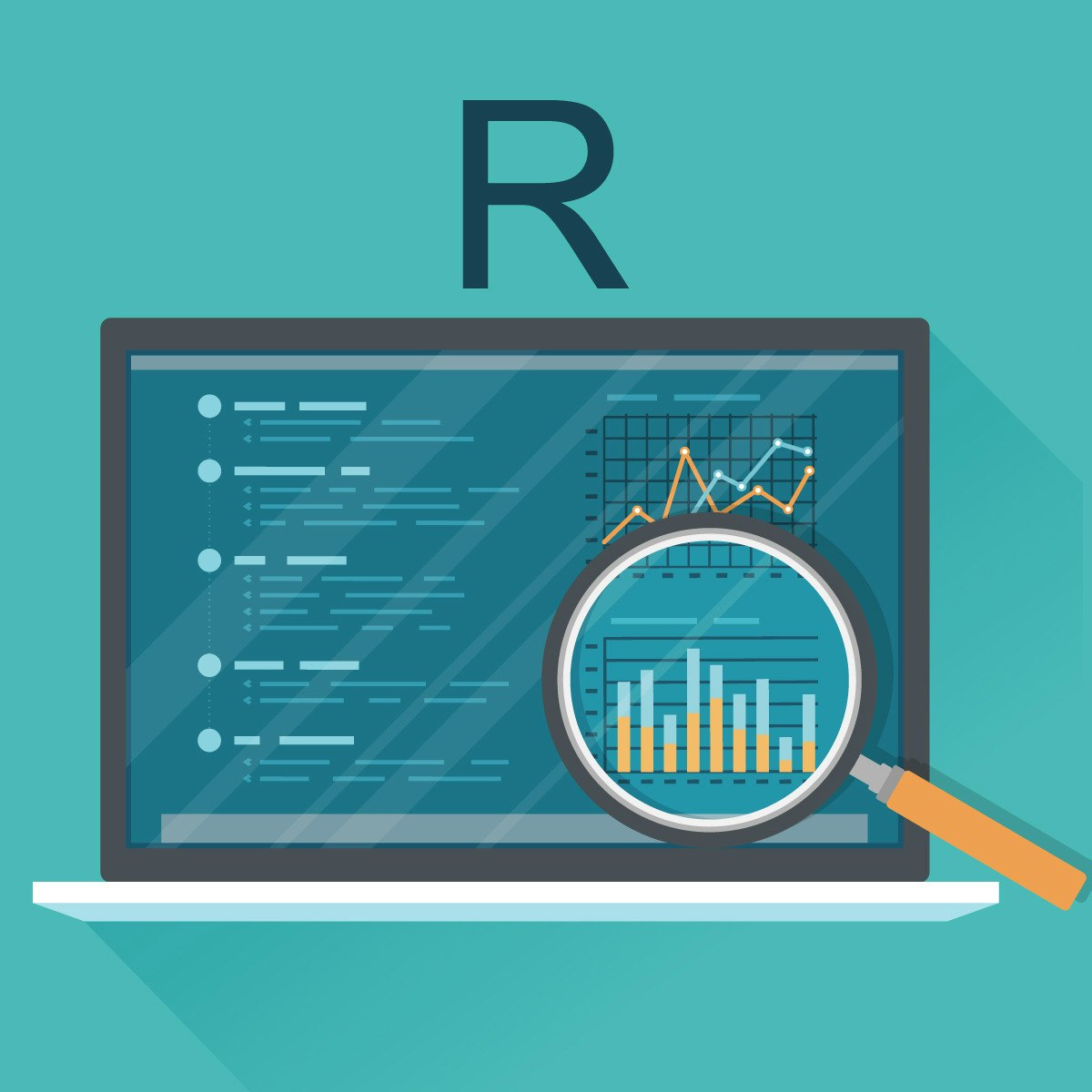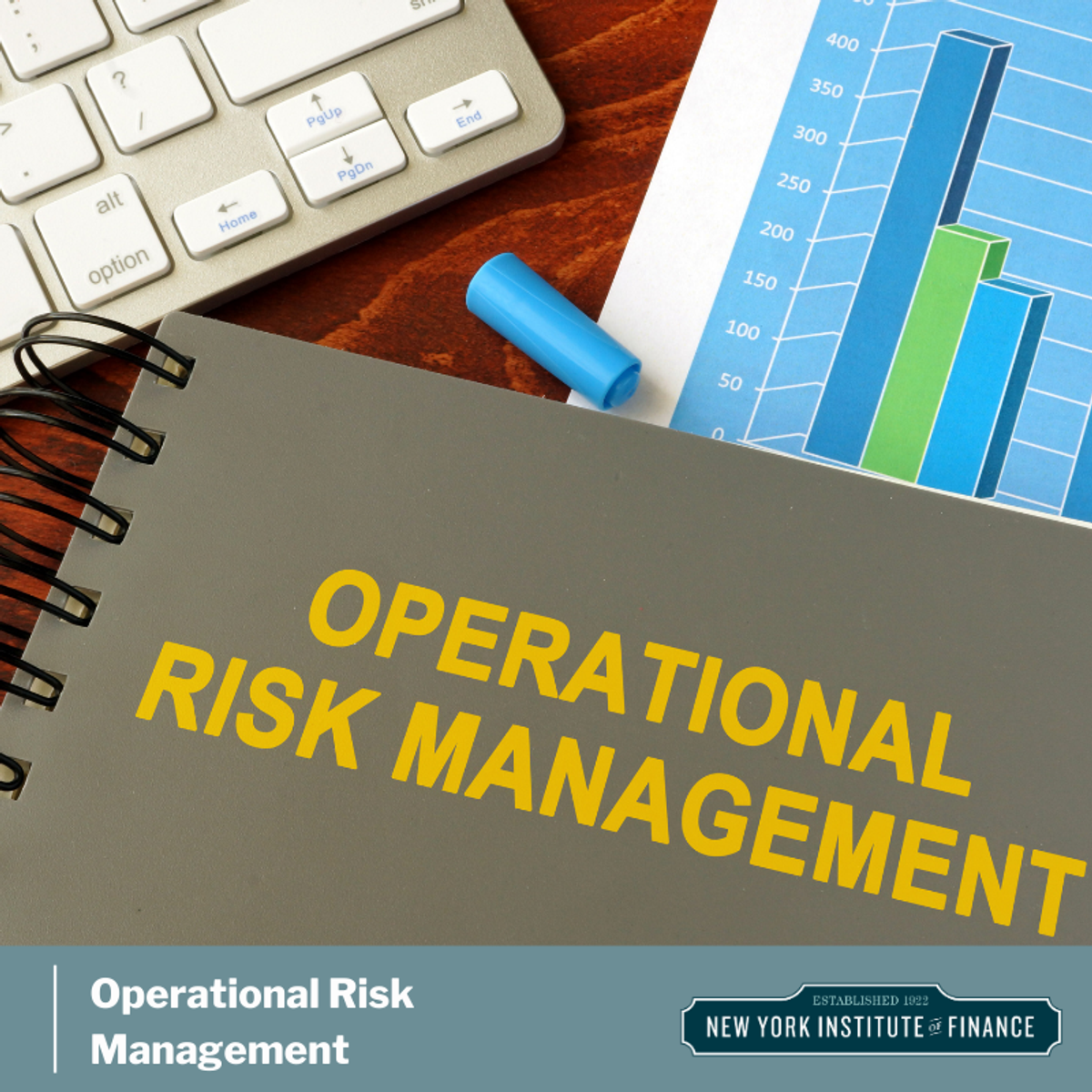Risk Analyst
Decoding the Role of a Risk Analyst: A Comprehensive Career Guide
A Risk Analyst plays a crucial role in helping organizations navigate uncertainty. At its core, this career involves identifying potential threats that could harm an organization's financial standing, reputation, operational continuity, or strategic objectives. These professionals meticulously assess the likelihood and potential impact of these threats, developing strategies to manage or mitigate them effectively.
Working as a Risk Analyst can be intellectually stimulating. You'll often find yourself immersed in complex data, building sophisticated models to predict future events. The role frequently involves collaborating with diverse teams across an organization, from finance and operations to legal and IT, offering a broad perspective on business functions. Furthermore, the ability to directly influence critical business decisions and safeguard an organization's future provides a significant sense of purpose and impact.
This field demands a blend of analytical rigor and strategic thinking. If you enjoy dissecting problems, working with numbers, and developing proactive solutions, a career in risk analysis might be a rewarding path. It's a discipline that sits at the intersection of data, finance, strategy, and increasingly, technology.
Introduction to Risk Analysis
This section provides a foundational understanding of the risk analysis field, outlining its scope, objectives, and relevance across various industries.
Defining the Risk Analyst Role
A Risk Analyst is essentially a professional detective for potential problems within an organization. Their primary function is to systematically identify events or conditions that could negatively affect the company. This involves looking at everything from financial market fluctuations and operational failures to cybersecurity threats and regulatory changes.
Once potential risks are identified, the analyst evaluates them based on their probability of occurring and the severity of their potential impact. This assessment helps prioritize which risks require the most urgent attention and resources. The ultimate goal is not necessarily to eliminate all risk—which is often impossible—but to understand and manage it within acceptable levels defined by the organization's strategy and risk appetite.
The scope of risk analysis is broad and continually evolving. It's not just about preventing losses; it's also about identifying potential opportunities that might arise from uncertainty. Effective risk analysis supports better decision-making, optimizes resource allocation, and enhances overall organizational resilience.
This introductory course offers a solid overview of the fundamental concepts and practices in risk management.
Where Risk Analysts Work
Risk analysts are sought after in a wide array of sectors because virtually every organization faces uncertainty. The financial services industry—including banks, insurance companies, investment firms, and hedge funds—is a major employer. Here, analysts focus on market risk, credit risk, liquidity risk, and operational risk, often driven by complex regulatory requirements.
Beyond finance, healthcare organizations employ risk analysts to manage patient safety risks, operational hazards, and compliance with health regulations like HIPAA. The energy sector relies on analysts to assess geopolitical risks, commodity price volatility, and environmental hazards associated with exploration and production.
Technology companies, particularly those in cybersecurity, heavily depend on risk analysts to identify and mitigate threats to data security, privacy, and system integrity. Government agencies also employ risk analysts for national security, public health, and economic stability purposes. Consulting firms frequently hire risk analysts to advise clients across various industries on risk management strategies.
Core Objectives of Risk Analysis
The fundamental objective of risk analysis is to protect and enhance organizational value by managing uncertainty. This involves a continuous cycle of identifying, assessing, evaluating, treating, and monitoring risks. Identification means pinpointing potential sources of risk, both internal and external.
Assessment involves analyzing the likelihood and consequences of identified risks. This often requires quantitative methods, like statistical modeling, and qualitative approaches, such as expert judgment and scenario planning. Evaluation compares the assessed level of risk against predefined criteria or the organization's tolerance for risk.
Based on the evaluation, analysts recommend and help implement risk treatment strategies. These might include avoiding the risk, reducing its likelihood or impact, transferring the risk (e.g., through insurance), or accepting the risk if it falls within acceptable limits. Monitoring involves tracking risks and the effectiveness of mitigation strategies over time, adapting as conditions change.
This course provides insights into managing risks specifically within development projects, a common context for applying risk principles.
A Brief History
While managing risk is as old as human endeavor, risk analysis as a formal discipline has more recent roots. Early developments occurred in insurance and finance, where quantifying uncertainty was essential. The development of probability theory in the 17th century provided mathematical tools for analyzing games of chance, laying groundwork for future risk assessment.
Modern portfolio theory, introduced by Harry Markowitz in the 1950s, revolutionized financial risk management by demonstrating how diversification could reduce portfolio risk. The field gained further prominence with major financial crises, regulatory responses (like the Basel Accords), and the increasing complexity of global markets.
The rise of computing power enabled sophisticated modeling techniques, like Monte Carlo simulations, to become standard practice. More recently, concerns about cybersecurity, climate change, and geopolitical instability have broadened the scope of risk analysis beyond purely financial concerns, integrating Environmental, Social, and Governance (ESG) factors.
This book delves into the quantitative aspects that underpin modern risk management.
Key Responsibilities of a Risk Analyst
Understanding the day-to-day tasks of a Risk Analyst helps clarify the practical application of their skills and knowledge within an organization.
Data Gathering and Analysis
A significant part of a Risk Analyst's job involves collecting relevant data from various sources. This could include financial market data, operational performance metrics, customer information, cybersecurity logs, industry reports, and regulatory updates. Ensuring data quality, completeness, and accuracy is a critical first step.
Analysts then employ both quantitative and qualitative methods to analyze this data. Quantitative analysis often involves statistical techniques to measure risk frequency and severity, identify correlations, and test hypotheses. Tools like Excel, SQL databases, and statistical software (R, Python) are commonly used.
Qualitative analysis complements the numbers by considering factors that are harder to quantify, such as reputational damage, employee morale, or shifts in the political landscape. Techniques like interviews, surveys, workshops, and expert judgment help capture these nuanced aspects of risk.
These courses provide foundational skills in data analysis tools frequently used by risk analysts.
This book is a standard reference for using Python in data analysis tasks.
Building and Using Risk Models
Risk modeling is a core competency for many risk analysts, especially in quantitative fields like finance and insurance. Models are mathematical representations used to simulate potential risk scenarios and estimate their financial or operational impact. They help organizations understand complex interdependencies and make data-driven decisions.
Common techniques include Monte Carlo simulations, which use random sampling to model the probability of different outcomes in processes with inherent uncertainty. Scenario analysis involves exploring the potential impact of specific, plausible future events (e.g., a sharp rise in interest rates, a major cyberattack). Stress testing pushes models to extreme conditions to assess resilience.
Explain Like I'm 5: Monte Carlo Simulation. Imagine you want to know how likely it is to rain on your picnic day next week. You can't know for sure, but you can guess based on past weather. A Monte Carlo simulation is like playing a guessing game thousands of times using a computer. Each time, the computer rolls imaginary dice based on past weather patterns to decide if it rains or not. After thousands of "pretend" picnic days, you count how many times it rained. This gives you a good idea of the *chance* it might rain on your actual picnic day.
Developing, validating, and maintaining these models requires strong quantitative skills and an understanding of the underlying assumptions and limitations. Analysts must ensure models remain relevant and accurate as market conditions or business operations change.
These courses introduce statistical modeling concepts relevant to risk analysis.
Reporting and Communication
Analyzing risks and building models is only part of the job. Risk Analysts must effectively communicate their findings and recommendations to various stakeholders, including senior management, board members, regulators, and operational teams. This requires translating complex technical information into clear, concise, and actionable insights.
Reports often include dashboards with key risk indicators (KRIs), summaries of major risks, details of assessment methodologies, and proposed mitigation strategies. Visualizations like charts and graphs are crucial for conveying trends and comparisons effectively. Presentations are common, requiring strong verbal communication and the ability to answer challenging questions.
The analyst acts as a bridge between technical analysis and business strategy. They need to tailor their communication style to the audience, highlighting the implications of risks for specific business objectives and demonstrating the value of proposed risk management actions.
Developing skills in data visualization and reporting tools is beneficial.
Compliance and Audit Support
In many industries, particularly finance and healthcare, risk management is heavily regulated. Risk Analysts play a key role in ensuring their organizations comply with relevant laws, regulations, and industry standards (e.g., GDPR, Basel III, HIPAA, SOX).
This involves staying updated on regulatory changes, assessing their impact on the organization, and implementing necessary controls and procedures. Analysts often work closely with compliance departments and legal counsel. They may be responsible for developing and maintaining risk management policies and frameworks.
Risk Analysts also frequently support internal and external audits. They provide documentation, explain risk assessment methodologies and control effectiveness, and help address any findings or recommendations raised by auditors. This requires meticulous record-keeping and a thorough understanding of the organization's risk posture and control environment.
Understanding compliance frameworks is essential in many risk roles.
Essential Skills and Qualifications
To succeed as a Risk Analyst, a specific blend of technical expertise, analytical abilities, and interpersonal skills is necessary. Educational background and professional certifications can also significantly enhance career prospects.
Technical Proficiency
Strong quantitative and technical skills form the bedrock of risk analysis. Proficiency in spreadsheet software like Microsoft Excel is fundamental for data manipulation, basic modeling, and reporting. Many roles require expertise in database querying using SQL to extract and manage large datasets.
Knowledge of statistical programming languages such as R or Python is increasingly valuable, particularly for advanced modeling, data visualization, and automating analytical tasks. Familiarity with specific risk management software platforms or enterprise resource planning (ERP) systems may also be required depending on the industry and employer.
Experience with data visualization tools like Tableau or Power BI helps in presenting complex data effectively. Depending on the specialization (e.g., cybersecurity), knowledge of specific security tools or network protocols might be necessary.
These courses cover essential technical tools used by risk analysts.
Analytical and Soft Skills
Beyond technical tools, Risk Analysts need strong analytical and critical thinking skills. They must be able to dissect complex problems, identify patterns and anomalies in data, evaluate evidence objectively, and formulate logical conclusions. Attention to detail is paramount, as small errors in data or modeling can have significant consequences.
Effective communication skills, both written and verbal, are crucial for explaining technical findings to non-technical audiences and influencing decision-making. Problem-solving abilities are essential for developing creative and practical mitigation strategies.
Risk analysts often work under pressure and need good organizational skills to manage multiple tasks and deadlines. Collaboration and teamwork are important, as they frequently interact with colleagues from various departments. A high degree of ethical integrity is also necessary, given the sensitive nature of the information handled.
Industry Certifications
Professional certifications can significantly boost a Risk Analyst's credibility and career prospects. They demonstrate specialized knowledge and commitment to the field. Some widely recognized certifications include:
The Financial Risk Manager (FRM), offered by the Global Association of Risk Professionals (GARP), is highly respected in the financial industry, covering market, credit, operational, and investment risk. The Professional Risk Manager (PRM), offered by the Professional Risk Managers' International Association (PRMIA), is another globally recognized credential covering similar domains.
For those specializing in information security risk, the Certified Information Systems Security Professional (CISSP) from (ISC)² or the Certified in Risk and Information Systems Control (CRISC) from ISACA are valuable. Other certifications may be relevant depending on the specific industry or area of focus, such as those related to specific regulations or audit practices.
This course provides a professional certificate in risk management, covering key frameworks and practices.
Understanding Risk Frameworks
Familiarity with established risk management frameworks provides a structured approach to identifying, assessing, and managing risks. These frameworks offer standardized methodologies and best practices recognized across industries. Knowledge of these frameworks is often expected by employers.
The COSO (Committee of Sponsoring Organizations of the Treadway Commission) Enterprise Risk Management (ERM) Framework is widely used, particularly for integrating risk management with strategy and performance. ISO 31000 provides principles and generic guidelines on risk management applicable to any organization.
In specific sectors, other frameworks are crucial. For instance, the NIST (National Institute of Standards and Technology) Cybersecurity Framework is standard in IT and cybersecurity risk management. Understanding these frameworks helps analysts implement consistent and comprehensive risk management processes.
This course covers operational risk frameworks and strategies.
Formal Education Pathways
While practical experience and skills are vital, a solid educational foundation is typically required to enter and progress in the field of risk analysis. Several academic paths can lead to this career.
Relevant Bachelor's Degrees
A bachelor's degree is generally the minimum educational requirement for entry-level Risk Analyst positions. Degrees in quantitative fields are highly advantageous. Common choices include Finance, Economics, Mathematics, Statistics, or Actuarial Science.
Business Administration degrees, particularly with a concentration in finance or risk management, are also relevant. Increasingly, degrees in Data Science, Computer Science, or Engineering are becoming valuable entry points, especially for roles involving complex modeling or cybersecurity risk.
Regardless of the major, coursework in statistics, probability, calculus, economics, finance, and computer programming provides a strong foundation. Strong academic performance and internships in relevant fields can significantly improve job prospects upon graduation.
These courses cover foundational mathematical and statistical concepts often taught in relevant degree programs.
These books provide deeper dives into probability and statistics.
Graduate Studies in Risk Management
For more specialized or senior roles, particularly in quantitative finance or complex risk modeling, a master's degree or PhD may be beneficial or even required. Master's programs specifically in Risk Management, Financial Engineering, Quantitative Finance, or Data Science offer advanced training.
These programs delve deeper into stochastic calculus, advanced statistical modeling, derivative pricing, portfolio theory, computational methods, and specific types of risk (e.g., credit risk modeling, operational risk quantification). They often involve practical projects or theses applying learned concepts.
A PhD is typically pursued by those interested in research-oriented roles, academia, or highly specialized quantitative positions (e.g., developing novel risk models at hedge funds or investment banks). PhD programs involve rigorous coursework and original research contributing new knowledge to the field.
This advanced course introduces concepts often covered in graduate-level finance programs.
Enhancing Your Studies with Electives
Beyond core quantitative and finance courses, certain electives can broaden a prospective Risk Analyst's skill set and understanding. Courses in business ethics are valuable, given the ethical dimensions of risk decisions and potential conflicts of interest.
Macroeconomics and microeconomics provide context for understanding market dynamics and systemic risks. Behavioral finance or economics can offer insights into how psychological biases affect market behavior and risk perception.
Courses in corporate governance, regulatory policy, or specific industry domains (like healthcare administration or energy policy) can be advantageous depending on career interests. Strong writing and communication courses are always beneficial for developing reporting and presentation skills.
These courses cover relevant supplementary topics.
Online Learning and Skill Development
For those seeking to enter the field without a traditional degree path, or professionals looking to upskill or pivot, online learning offers flexible and accessible options for developing essential Risk Analyst competencies.
Transitioning via Online Education
Transitioning into a risk analysis career through online education is certainly feasible, especially for individuals with existing quantitative or analytical backgrounds. Online courses, bootcamps, and certificate programs can provide targeted training in specific skills like data analysis with Python/R, SQL, financial modeling, or cybersecurity fundamentals.
Platforms like OpenCourser aggregate thousands of courses from various providers, allowing learners to build a personalized curriculum. You can find courses covering statistical concepts, specific software tools, risk management frameworks, and industry knowledge. OpenCourser's Learner's Guide offers valuable tips on structuring your self-learning journey and staying disciplined.
However, it's important to be realistic. While online courses build foundational knowledge and technical skills, breaking into the field often requires demonstrating practical application through projects, internships, or entry-level roles. Networking and potentially pursuing relevant certifications remain crucial complements to online learning for career changers.
This requires dedication and self-discipline, but the flexibility of online learning allows you to acquire skills at your own pace while potentially balancing other commitments. Remember, the journey is a marathon, not a sprint; consistent effort is key.
Core Topics for Online Learners
For beginners aiming for a risk analysis career via online learning, focusing on core competencies is essential. Start with foundational mathematics and statistics, ensuring a solid grasp of probability, distributions, hypothesis testing, and regression analysis. Many introductory statistics courses are available online.
Developing proficiency in data analysis tools is critical. Focus on mastering Excel for data manipulation and basic analysis, then move to SQL for database querying. Learning a programming language like Python or R for more advanced statistical analysis and modeling is highly recommended.
Understanding basic financial concepts, such as financial statements, time value of money, and different asset classes, is important, especially for roles in finance. Introductory courses in finance and accounting can bridge this gap. Familiarity with core risk management principles and frameworks (like COSO or ISO 31000) is also beneficial.
These courses cover foundational statistical and data analysis concepts suitable for beginners.
These books offer comprehensive introductions to Bayesian methods and statistical thinking, valuable for data analysis.
Building a Portfolio
Completing online courses demonstrates theoretical knowledge, but practical application is what truly impresses employers. Building a portfolio of independent projects is an excellent way for online learners and career changers to showcase their skills and initiative.
Projects can involve analyzing publicly available datasets (e.g., financial market data, census data, public health statistics) to identify trends, assess risks, or build predictive models. You could simulate portfolio risk using Monte Carlo methods, analyze loan default probabilities, or assess cybersecurity vulnerabilities based on hypothetical scenarios.
Document your projects thoroughly, explaining the problem, methodology, tools used, findings, and limitations. Hosting your code and analyses on platforms like GitHub allows potential employers to review your work directly. Contributing to open-source projects related to risk analysis or data science can also be a valuable addition to your portfolio.
These project-based courses offer hands-on experience in applying analytical skills.
Combining Online Learning with Experience
While online courses provide knowledge, combining them with practical experience significantly strengthens your candidacy. Seek internships, volunteer opportunities, or entry-level positions in related fields like data analysis, finance, or compliance, even if they aren't specifically "Risk Analyst" roles initially.
Experience in handling data, working with analytical tools, understanding business processes, or dealing with regulations provides valuable context and transferable skills. Even within your current role, look for opportunities to apply risk analysis principles or contribute to risk-related projects.
Consider pairing online coursework with preparation for a relevant industry certification (like FRM or PRM foundations). This structured learning path, combined with demonstrated skills through projects and any available practical experience, presents a compelling profile for aspiring Risk Analysts transitioning through non-traditional routes.
Career Progression and Opportunities
A career in risk analysis offers diverse paths for growth and specialization, leading potentially to senior leadership roles or transitions into related fields.
Starting Your Career
Entry-level positions often carry titles like Risk Analyst I, Junior Risk Analyst, Credit Analyst, or Compliance Analyst. In these roles, individuals typically focus on specific tasks like data gathering, basic analysis, supporting senior analysts, generating routine reports, or performing initial risk assessments under supervision.
These early roles provide crucial exposure to the organization's business, risk management framework, data sources, and analytical tools. It's a period for building foundational skills, understanding industry specifics, and identifying areas of interest for future specialization.
Employers typically look for candidates with a relevant bachelor's degree, strong analytical aptitude, proficiency in tools like Excel, and good communication skills. Internships or relevant project work significantly enhance competitiveness for these entry-level opportunities.
Mid-Career Development
After gaining a few years of experience, Risk Analysts often face choices regarding their career trajectory. One path involves specialization within a specific type of risk (e.g., market risk, credit risk, operational risk, cybersecurity risk) or a particular industry (e.g., banking, insurance, energy, tech).
Specialization allows analysts to develop deep expertise, often requiring advanced technical skills, specific certifications (like FRM or CISSP), and a thorough understanding of relevant regulations and modeling techniques. Specialists become subject matter experts relied upon for complex assessments and strategic advice in their domain.
Alternatively, analysts may pursue a management track. This involves supervising junior analysts, managing risk projects, coordinating risk activities across departments, and taking on broader responsibility for parts of the organization's risk framework. This path emphasizes leadership, communication, strategic thinking, and stakeholder management skills alongside analytical understanding.
Advancing to Senior Roles
With significant experience and demonstrated expertise, Risk Analysts can advance to senior leadership positions. Titles might include Senior Risk Manager, Director of Risk Management, Head of Risk, or ultimately, Chief Risk Officer (CRO).
These roles involve overseeing the entire enterprise risk management (ERM) program, setting the organization's risk appetite, advising the board of directors and executive management on strategic risks, and shaping the overall risk culture. They require a deep understanding of the business, strong leadership capabilities, and the ability to integrate risk management with strategic planning.
Senior risk leaders play a critical role in navigating complex challenges, ensuring regulatory compliance, protecting the organization's assets and reputation, and contributing to long-term sustainable growth. Attaining these positions typically requires extensive experience, advanced qualifications (often including graduate degrees or top-tier certifications), and a strong track record of success.
Pivoting to Related Areas
The skills developed as a Risk Analyst are highly transferable, opening doors to various related career paths. Many analysts move into roles in compliance, ensuring adherence to regulations and internal policies, leveraging their understanding of risk controls and regulatory environments.
Opportunities also exist in internal audit, evaluating the effectiveness of risk management processes and controls. Some transition into strategic planning or corporate development, using their analytical skills and understanding of business risks to inform strategic decisions.
With strong quantitative backgrounds, some may move into data science or quantitative analysis roles focused on predictive modeling beyond purely risk applications. Others might leverage their industry expertise to move into management consulting, advising clients on risk management or related business challenges.
Risk Analyst in Different Industries
While core principles remain similar, the specific focus and methodologies of risk analysis can vary significantly depending on the industry context.
Risk Analysis in Finance
The financial services sector is arguably where risk analysis is most formalized and regulated. Analysts focus on several key areas: Credit Risk involves assessing the likelihood that borrowers (individuals or corporations) will default on their loans or obligations. Market Risk concerns potential losses due to fluctuations in market prices (stocks, bonds, currencies, commodities).
Liquidity Risk addresses the possibility that a firm cannot meet its short-term financial obligations. Operational Risk covers potential losses from failed internal processes, people, systems, or external events (including fraud and legal risks). Financial risk analysts often use sophisticated quantitative models (Value at Risk - VaR, stress testing) and must navigate complex regulations like Basel III.
Portfolio stress-testing is another critical activity, simulating the impact of adverse market scenarios on investment portfolios to understand potential losses and ensure sufficient capital reserves.
These courses and topics are highly relevant to financial risk analysis.
This book is a classic text on risk management within financial institutions.
Risk Analysis in Technology
In the technology sector, cybersecurity risk is a primary concern. Risk analysts identify vulnerabilities in software, hardware, networks, and cloud infrastructure, assessing the potential impact of data breaches, denial-of-service attacks, ransomware, and other cyber threats. They help implement security controls and ensure compliance with data privacy regulations like GDPR and CCPA.
Another key area is product launch risk assessment. Analysts evaluate potential technical failures, market adoption challenges, intellectual property risks, and competitive responses associated with introducing new products or services. Operational risks, such as supply chain disruptions for hardware manufacturers or service outages for cloud providers, are also critical.
The fast pace of technological change means analysts must constantly adapt to new threats and vulnerabilities associated with emerging technologies like AI, IoT, and blockchain.
These resources cover cybersecurity and IT risk concepts.
This book provides a framework for managing cyber risk.
Risk Analysis in Healthcare
Healthcare risk management focuses heavily on patient safety, aiming to minimize errors and adverse events. Analysts assess risks associated with clinical procedures, medication administration, hospital-acquired infections, and medical device failures. They analyze incident reports and implement quality improvement initiatives.
Operational risks are also significant, including staffing shortages, equipment malfunctions, supply chain issues for medical supplies, and risks related to electronic health record (EHR) systems (including data security and system downtime). Financial risks involve managing insurance claims, reimbursement rates, and potential malpractice litigation.
Regulatory compliance is paramount in healthcare. Analysts ensure adherence to standards set by bodies like The Joint Commission and regulations such as HIPAA, which governs patient privacy and data security. They manage risks associated with audits and potential penalties for non-compliance.
This course addresses anti-money laundering, a compliance risk also relevant in sectors handling large financial transactions, sometimes including healthcare billing.
Risk Analysis in Energy and Other Sectors
The energy sector faces unique risks. Geopolitical risks affect supply stability and pricing, particularly for oil and gas. Environmental risks include accidents (like oil spills), regulatory changes related to emissions, and the physical impacts of climate change on infrastructure. Commodity price volatility is a major market risk.
In manufacturing, operational risks include supply chain disruptions, quality control failures, and workplace safety hazards. Project management risks are crucial for large infrastructure or construction projects, involving potential cost overruns, delays, and technical challenges.
Retailers face risks related to consumer demand shifts, inventory management, cybersecurity (especially for e-commerce), and reputational damage. Across all sectors, strategic risks related to competition, technological disruption, and changing customer preferences are increasingly important areas for risk analysis.
These courses cover project risk and process safety, relevant in energy and manufacturing.
Emerging Trends and Challenges
The field of risk analysis is dynamic, constantly evolving in response to new technologies, changing global conditions, and emerging threats. Staying abreast of these trends is crucial for practitioners.
Artificial Intelligence and Machine Learning
AI and Machine Learning (ML) are transforming risk analysis. These technologies enable the processing of vast datasets to identify subtle patterns, predict future risks with greater accuracy, and automate certain risk assessment tasks. Predictive models built with AI/ML can enhance credit scoring, fraud detection, market risk forecasting, and cybersecurity threat intelligence.
However, the use of AI/ML also introduces new challenges. Model complexity can lead to "black box" problems, making it difficult to understand how decisions are made. Bias embedded in training data can perpetuate or even amplify unfair outcomes. Ensuring the ethical, transparent, and robust deployment of AI in risk management is a critical emerging issue.
Grounding Search Snippet: A McKinsey article discusses how generative AI (GenAI) is being adopted in risk management for tasks like identifying emerging risks, automating compliance checks, and improving model validation, while also highlighting the need for careful governance.
These courses explore the intersection of AI/ML and risk or related fields.
This book delves into Bayesian methods, often foundational for probabilistic machine learning.
Climate Change and ESG Integration
Environmental, Social, and Governance (ESG) factors are increasingly recognized as material risks. Climate change presents physical risks (e.g., damage to infrastructure from extreme weather) and transition risks (e.g., policy changes impacting carbon-intensive industries). Risk analysts are tasked with integrating climate risk scenarios into financial modeling and strategic planning.
Social risks encompass issues like labor practices, human rights in supply chains, data privacy, and community relations. Governance risks relate to board structure, executive compensation, business ethics, and shareholder rights. Investors and regulators are demanding greater transparency and management of ESG risks.
Integrating these often qualitative and long-term factors into traditional risk frameworks requires new methodologies and data sources. Analysts need to understand how ESG issues can impact reputation, regulatory standing, access to capital, and long-term financial performance.
This course provides an introduction to ESG concepts.
Regulatory Landscape Shifts
The regulatory environment for risk management is constantly evolving, often in response to crises or emerging threats. Global frameworks like the Basel Accords for banking continue to be updated (e.g., Basel III finalization, sometimes referred to as Basel IV), imposing stricter capital and liquidity requirements.
Data privacy regulations like the EU's General Data Protection Regulation (GDPR) and similar laws in other jurisdictions impose significant compliance burdens and risks related to data handling. Financial regulations aimed at market stability, consumer protection (like Dodd-Frank in the US), and anti-money laundering (AML) are continually refined.
Risk analysts must stay informed about these shifts, assess their implications for the organization, and ensure that risk management practices and controls remain compliant. This requires ongoing monitoring of regulatory developments and engagement with compliance and legal teams.
These courses touch upon relevant regulatory aspects.
Cybersecurity Threats and Data Privacy
Cybersecurity remains a top-tier risk across nearly all industries. The threat landscape is constantly evolving, with more sophisticated ransomware attacks, state-sponsored espionage, supply chain vulnerabilities, and threats targeting cloud infrastructure and IoT devices. The potential financial and reputational damage from a major breach is immense.
Risk analysts specializing in cybersecurity focus on identifying vulnerabilities, assessing the likelihood and impact of various attack vectors, quantifying cyber risk, and recommending security controls. This involves working closely with IT security teams and using frameworks like NIST.
Data privacy concerns are intrinsically linked to cybersecurity. Protecting sensitive customer and employee data is not only a regulatory requirement but also crucial for maintaining trust. Analysts assess risks related to data collection, storage, usage, and sharing, ensuring compliance with privacy laws and implementing measures to prevent unauthorized access or misuse.
These courses provide insights into managing cybersecurity risks and threats.
Ethical Considerations in Risk Analysis
Risk analysis inherently involves making judgments and recommendations that can have significant consequences for individuals, organizations, and society. Ethical considerations are therefore integral to the profession.
Bias in Models and Data
Risk models are only as good as the data they are trained on and the assumptions built into them. Historical data can reflect past societal biases, leading to models that unfairly discriminate against certain groups (e.g., in credit scoring or insurance underwriting). Analysts have an ethical responsibility to be aware of potential biases in data and algorithms.
Efforts should be made to identify and mitigate bias where possible, ensuring models are fair and equitable. This involves careful data selection, feature engineering, model validation across different demographic groups, and ongoing monitoring for unintended discriminatory outcomes. Transparency about model limitations and potential biases is crucial.
This course discusses building fair AI algorithms, a critical topic related to model bias.
Balancing Profitability and Responsibility
Risk analysts often face situations where maximizing short-term profit might conflict with broader ethical considerations or long-term sustainability. For example, recommending investments in industries with negative environmental or social impacts, or cutting corners on safety measures to reduce costs.
Ethical risk analysis requires balancing financial objectives with responsibilities to employees, customers, communities, and the environment. This involves considering the wider impacts of decisions, adhering to professional codes of conduct, and advocating for responsible practices within the organization.
Organizations with a strong ethical culture empower analysts to raise concerns and integrate ethical considerations into risk assessments and decision-making processes. The rise of ESG factors reflects a growing recognition of this need to balance profit with broader responsibilities.
Ethical Reporting and Whistleblowing
Risk analysts may uncover information about potential wrongdoing, unethical behavior, or significant risks that management might prefer to ignore. They have an ethical obligation to report such findings accurately and objectively through appropriate channels within the organization.
Organizations should have clear procedures for escalating concerns and protecting individuals who report potential misconduct in good faith (whistleblowers). In situations where internal channels fail or are compromised, analysts may face difficult decisions about external reporting to regulators or authorities, navigating complex legal and ethical considerations.
Maintaining professional integrity and courage to speak truth to power, even when uncomfortable, is a hallmark of ethical risk analysis.
Learning from Past Ethical Failures
Analyzing historical events where risk management failures led to significant negative consequences, often involving ethical lapses, provides valuable lessons. The 2008 global financial crisis, for instance, highlighted issues related to complex financial instruments, conflicts of interest, inadequate risk models, and failures in regulatory oversight.
Case studies of major industrial accidents (e.g., Bhopal, Chernobyl), environmental disasters (e.g., Deepwater Horizon), or corporate scandals (e.g., Enron) illustrate the devastating impact when risks are ignored, downplayed, or managed unethically.
Studying these cases helps current and future risk analysts understand the potential pitfalls, recognize warning signs, and appreciate the profound importance of ethical considerations in their work.
This course examines the 2008 financial crisis, offering insights into risk management failures.
This book discusses the recurring nature of financial crises, often linked to risk management issues.
Frequently Asked Questions
Here are answers to some common questions individuals have when exploring a career as a Risk Analyst.
What is the typical salary range?
Risk Analyst salaries vary based on experience, education, certifications, industry, location, and company size. Entry-level positions might start in the range of $60,000 to $80,000 annually in the US.
Mid-career analysts with several years of experience and potentially certifications like FRM or PRM can expect salaries ranging from $80,000 to $130,000 or higher. Senior roles, such as Risk Managers or Directors, can command salaries well into the six figures, often exceeding $150,000, with Chief Risk Officers potentially earning significantly more, including bonuses and stock options.
According to the U.S. Bureau of Labor Statistics (BLS), financial analysts (a category that often includes risk analysts) had a median annual wage of $99,890 in May 2023. Salary surveys from firms like Robert Half also provide up-to-date benchmarks for specific roles and locations.
How does a Risk Analyst differ from an Actuary?
While both Risk Analysts and Actuaries deal with risk and uncertainty, their focus and methodologies differ. Actuaries primarily work in the insurance and pension industries, using advanced statistical and mathematical models to calculate the financial impact of future uncertain events (like death, illness, or accidents) to price insurance policies and manage pension funds.
Risk Analysts have a broader scope, working across various industries to identify, assess, and mitigate a wider range of risks, including financial, operational, strategic, and cybersecurity risks. While some risk analysts (especially in finance) use sophisticated quantitative models similar to actuaries, others rely more on qualitative assessments, framework implementation, and process controls. The path to becoming an actuary involves a rigorous series of professional exams distinct from typical risk management certifications.
Is programming mandatory for entry-level roles?
While programming skills (especially Python or R) are increasingly valuable and often preferred, they are not always strictly mandatory for all entry-level Risk Analyst positions. Many roles, particularly those focused on qualitative risk assessment, compliance, or operational risk, may initially rely more heavily on Excel, risk management software, and strong analytical and communication skills.
However, proficiency in programming languages significantly enhances competitiveness and opens doors to more quantitative roles and advanced modeling tasks. Even basic scripting skills can automate repetitive tasks and improve efficiency. Aspiring analysts are strongly encouraged to develop at least foundational programming skills, which can often be acquired through online courses found via platforms like OpenCourser Programming.
Can I transition from an unrelated field like marketing?
Yes, transitioning from fields like marketing, sales, or even humanities is possible, but it requires strategic effort. You'll need to demonstrate relevant transferable skills, such as analytical thinking, problem-solving, communication, and potentially project management.
Acquiring foundational knowledge in finance, statistics, and risk management principles through online courses or certifications is crucial. Building a portfolio of projects demonstrating your analytical capabilities (even using data relevant to your previous field initially) can bridge the experience gap.
Networking with professionals in the risk field and highlighting how your unique background brings a different perspective can also be advantageous. Be prepared to potentially start in a more junior role or a position that bridges your previous experience with risk (e.g., marketing risk analysis).
It requires dedication, but many have successfully made such transitions by proactively acquiring the necessary skills and knowledge.
What industries have the highest demand?
Demand for Risk Analysts is strong across several sectors. The financial services industry (banking, insurance, investment management) remains a primary source of demand due to the inherent nature of the business and extensive regulatory requirements.
Cybersecurity risk analysis is a rapidly growing field with high demand across all industries as organizations grapple with increasing digital threats. The healthcare sector also shows strong demand due to regulatory complexity and patient safety concerns.
Consulting firms consistently hire risk analysts to serve clients across various sectors. Large corporations in manufacturing, energy, and technology also maintain significant risk management functions. According to BLS projections, the overall employment of financial analysts is expected to grow faster than the average for all occupations, indicating healthy demand, though specific demand fluctuates with economic conditions and regulatory changes.
How might AI impact job security for Risk Analysts?
AI is likely to change the role of a Risk Analyst rather than eliminate it entirely. AI can automate routine tasks like data processing, basic report generation, and anomaly detection, freeing up analysts to focus on more complex, strategic activities.
AI tools can enhance analytical capabilities, enabling more sophisticated modeling and faster identification of emerging risks. However, human oversight remains critical for interpreting AI outputs, understanding context, managing model biases, making ethical judgments, and communicating findings to stakeholders.
Analysts who adapt by learning how to leverage AI tools, interpret AI-driven insights, and focus on strategic thinking, communication, and ethical considerations are likely to remain in high demand. The role may evolve towards managing AI-driven risk processes and ensuring their responsible deployment, requiring a blend of technical understanding and critical judgment.
Concluding Thoughts
Embarking on a career as a Risk Analyst offers a path filled with intellectual challenges and opportunities to make a tangible impact. It's a field that values analytical precision, strategic foresight, and clear communication. Whether you are assessing financial markets, securing digital infrastructure, or ensuring operational safety, the core task remains consistent: helping organizations navigate an uncertain world more effectively.
The journey requires continuous learning, adapting to new technologies, regulations, and emerging threats. While the path demands rigor and dedication, especially for those transitioning from other fields, resources like online courses, certifications, and practical projects make it accessible. With the right skills and mindset, a career in risk analysis can be both professionally rewarding and personally fulfilling, placing you at the forefront of critical decision-making.



















































